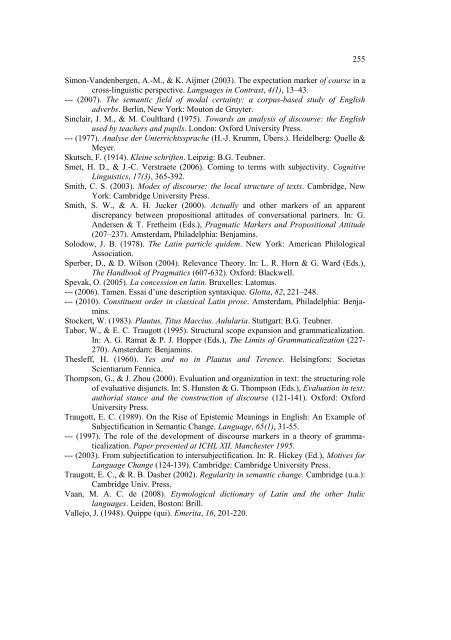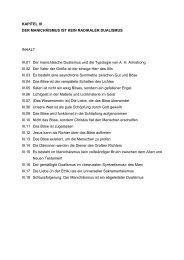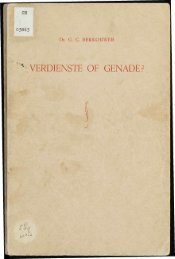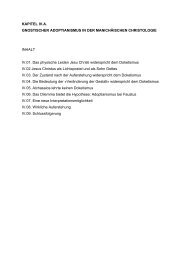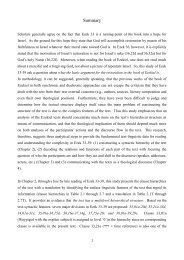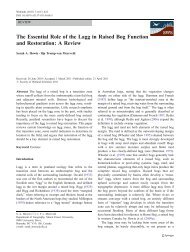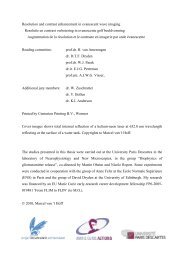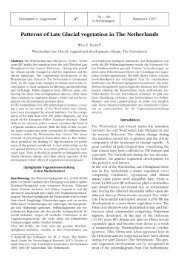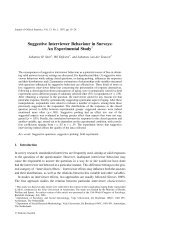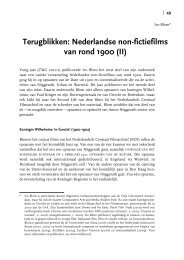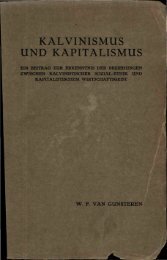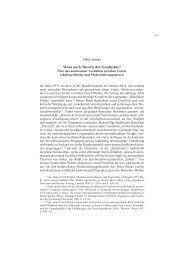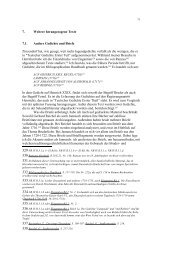Lateinische epistemische Partikeln - VU-DARE Home - Vrije ...
Lateinische epistemische Partikeln - VU-DARE Home - Vrije ...
Lateinische epistemische Partikeln - VU-DARE Home - Vrije ...
Sie wollen auch ein ePaper? Erhöhen Sie die Reichweite Ihrer Titel.
YUMPU macht aus Druck-PDFs automatisch weboptimierte ePaper, die Google liebt.
255<br />
Simon-Vandenbergen, A.-M., & K. Aijmer (2003). The expectation marker of course in a<br />
cross-linguistic perspective. Languages in Contrast, 4(1), 13–43.<br />
--- (2007). The semantic field of modal certainty: a corpus-based study of English<br />
adverbs. Berlin, New York: Mouton de Gruyter.<br />
Sinclair, J. M., & M. Coulthard (1975). Towards an analysis of discourse: the English<br />
used by teachers and pupils. London: Oxford University Press.<br />
--- (1977). Analyse der Unterrichtssprache (H.-J. Krumm, Übers.). Heidelberg: Quelle &<br />
Meyer.<br />
Skutsch, F. (1914). Kleine schriften. Leipzig: B.G. Teubner.<br />
Smet, H. D., & J.-C. Verstraete (2006). Coming to terms with subjectivity. Cognitive<br />
Linguistics, 17(3), 365-392.<br />
Smith, C. S. (2003). Modes of discourse: the local structure of texts. Cambridge, New<br />
York: Cambridge University Press.<br />
Smith, S. W., & A. H. Jucker (2000). Actually and other markers of an apparent<br />
discrepancy between propositional attitudes of conversational partners. In: G.<br />
Andersen & T. Fretheim (Eds.), Pragmatic Markers and Propositional Attitude<br />
(207–237). Amsterdam, Philadelphia: Benjamins.<br />
Solodow, J. B. (1978). The Latin particle quidem. New York: American Philological<br />
Association.<br />
Sperber, D., & D. Wilson (2004). Relevance Theory. In: L. R. Horn & G. Ward (Eds.),<br />
The Handbook of Pragmatics (607-632). Oxford: Blackwell.<br />
Spevak, O. (2005). La concession en latin. Bruxelles: Latomus.<br />
--- (2006). Tamen. Essai d‟une description syntaxique. Glotta, 82, 221–248.<br />
--- (2010). Constituent order in classical Latin prose. Amsterdam, Philadelphia: Benjamins.<br />
Stockert, W. (1983). Plautus, Titus Maccius. Aulularia. Stuttgart: B.G. Teubner.<br />
Tabor, W., & E. C. Traugott (1995). Structural scope expansion and grammaticalization.<br />
In: A. G. Ramat & P. J. Hopper (Eds.), The Limits of Grammaticalization (227-<br />
270). Amsterdam: Benjamins.<br />
Thesleff, H. (1960). Yes and no in Plautus and Terence. Helsingfors: Societas<br />
Scientiarum Fennica.<br />
Thompson, G., & J. Zhou (2000). Evaluation and organization in text: the structuring role<br />
of evaluative disjuncts. In: S. Hunston & G. Thompson (Eds.), Evaluation in text:<br />
authorial stance and the construction of discourse (121-141). Oxford: Oxford<br />
University Press.<br />
Traugott, E. C. (1989). On the Rise of Epistemic Meanings in English: An Example of<br />
Subjectification in Semantic Change. Language, 65(1), 31-55.<br />
--- (1997). The role of the development of discourse markers in a theory of grammaticalization.<br />
Paper presented at ICHL XII, Manchester 1995.<br />
--- (2003). From subjectification to intersubjectification. In: R. Hickey (Ed.), Motives for<br />
Language Change (124-139). Cambridge: Cambridge University Press.<br />
Traugott, E. C., & R. B. Dasher (2002). Regularity in semantic change. Cambridge (u.a.):<br />
Cambridge Univ. Press.<br />
Vaan, M. A. C. de (2008). Etymological dictionary of Latin and the other Italic<br />
languages. Leiden, Boston: Brill.<br />
Vallejo, J. (1948). Quippe (qui). Emerita, 16, 201-220.


